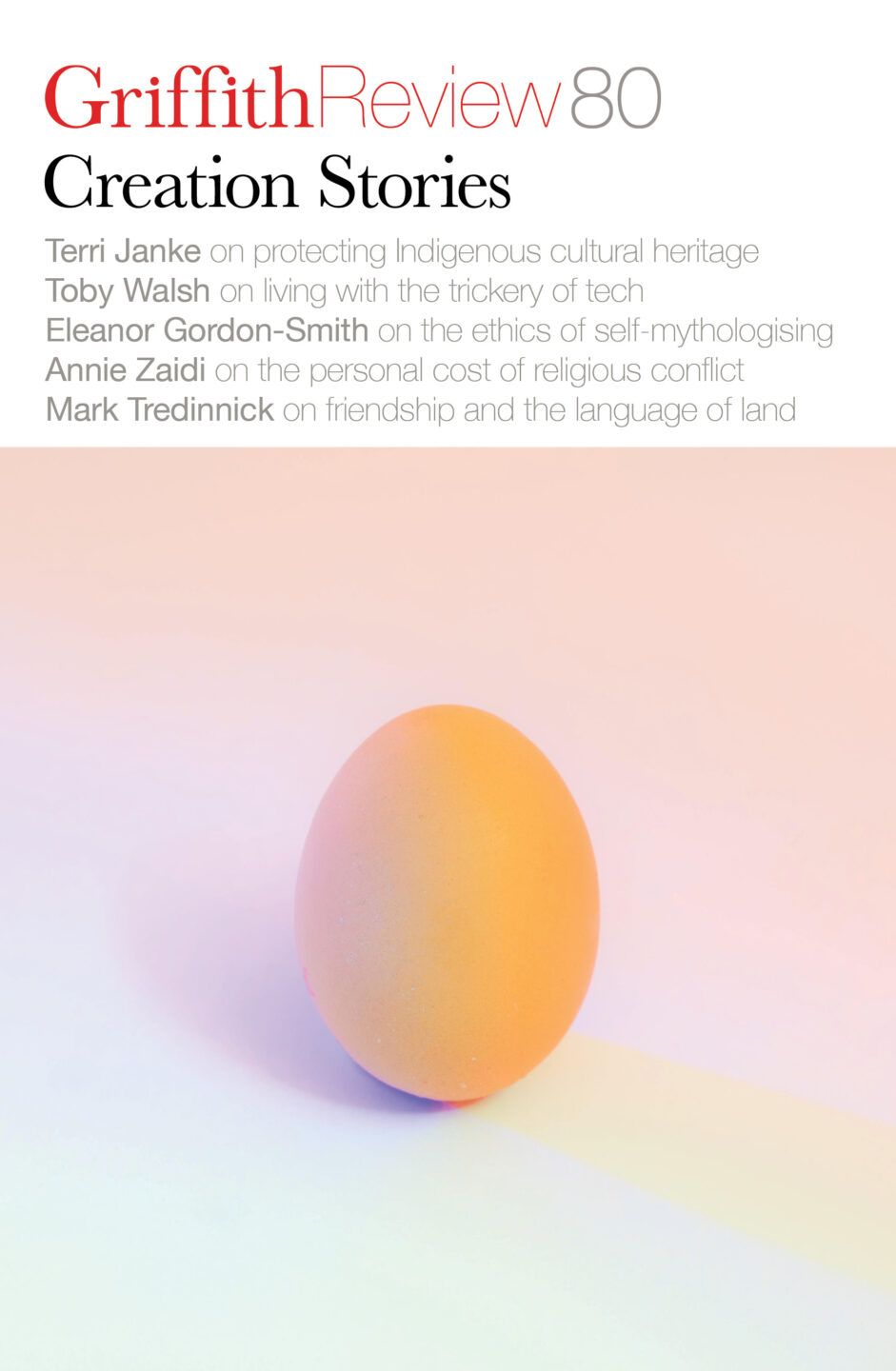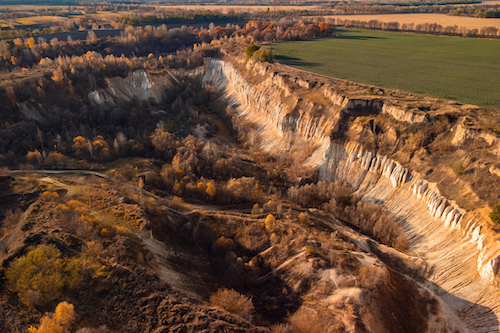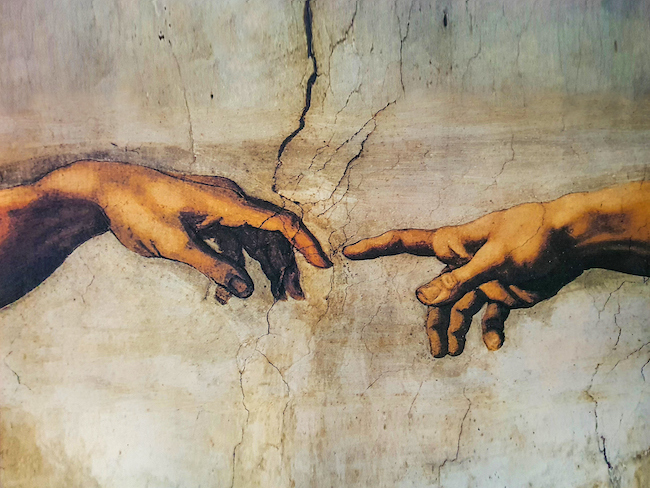Featured in

- Published 20230502
- ISBN: 978-1-922212-83-2
- Extent: 264pp
- Paperback (234 x 153mm), eBook


Already a subscriber? Sign in here
If you are an educator or student wishing to access content for study purposes please contact us at griffithreview@griffith.edu.au
Share article
About the author

Connor Tomas O’Brien
Connor Tomas O’Brien teaches in the Professional Writing and Editing program at RMIT University and runs a design studio for environmental organisations and non-profits.
More from this edition

To sing, to say
Non-fictionHow poetry works – its oracular way, its indirection – is how land works, he saw. Land as a teacher, as an embodiment not only of its own intergrity but of human aspirations and virtues like hope and beauty; land as an educator of the senses; land as a measure against which to prove and compare one’s own and others’ lives, as a theatre for the divine comedy of all human life; land as an elder, as a god, as a library...

On the right track
Non-fictionWhen the National Cultural Policy was released, the Albanese government stated their commitment to developing legislation to protect Indigenous Cultural and Intellectual Property. At last there will be a legal framework which can not only protect Indigenous peoples’ rights, but also set the pathway for better sharing of culture and greater respect for Indigenous cultures as the oldest living cultures in the world.

Let there be light
IntroductionWhether they’re personal, cultural or religious, these are the stories that offer us ways of orienting ourselves amid the sheer chaos and confusion of being alive – particularly today, as humanity’s existential and environmental crises continue to mount.